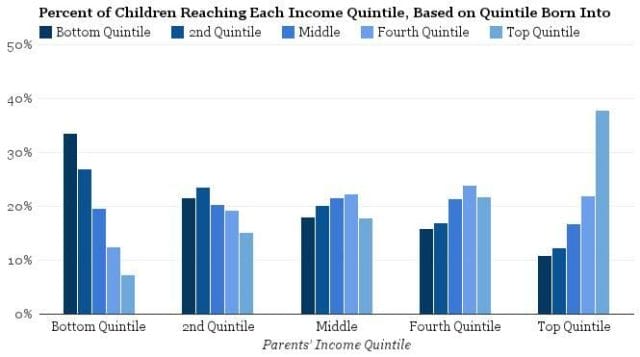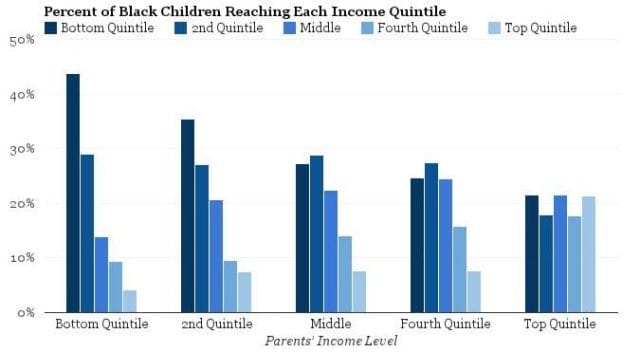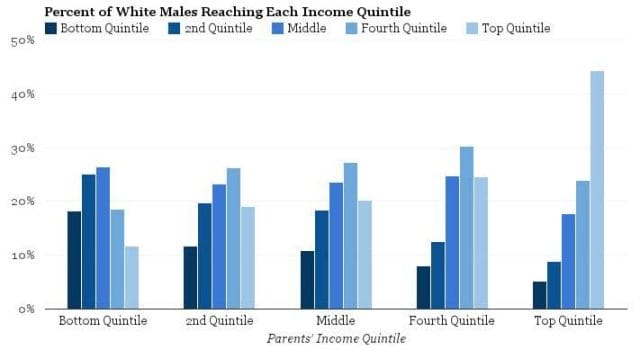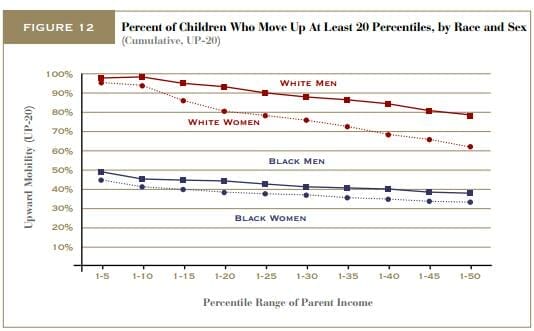“Americans have so far put up with inequality because they felt they could change their status. They didn’t mind others being rich, as long as they had a path to move up as well. The American Dream is all about social mobility in a sense – the idea that anyone can make it.”
– Fareed Zakaria
In American mythology, “anyone can make it” with enough passion and hard work. But is this true? According to a study by Pew Trusts, it depends:

Income Mobility Based on Parents’ Income. Data via Pew Trusts
In an extensive survey of households, the Pew Trusts compared parents’ incomes to the incomes of their grown up children. Overall, things don’t look very rosy, but there is plenty of promise. The poorest quintile (20% of the population) tends to stay poor, and the richest quintile tends to stay rich. Meanwhile, the three quintiles in between have nearly the same likelihood of moving up or down to each income level. In other words, the middle classes have mobility, the rich stay rich, and the poor stay poor.
But the above graph hides a tremendous amount of variation. Here is the same chart for just Black children:

Income Mobility of Black Children Based on Parents’ Income. Data via Pew Trusts
In the poorest quintile of Black children, over 70% remained in the bottom two income quintiles. In fact, for all but the richest quintile, the likelihood of Black children staying in or moving to the bottom two levels exceeded that of moving to the top three levels. Even those born in the richest quintile had no real guarantee of staying there. Among Black Americans, social mobility is difficult — except in the wrong direction.
Meanwhile, White males seem to show the exact opposite trend:

Income Mobility of White Males Based on Parents’ Income. Data via Pew Trusts
If you are a White male in the bottom two quintiles, you still stand a pretty good shot of moving up. And the richer your parents were, the more likely you are to stay rich. Almost 50% of White males growing up in the top income quintile remained among the wealthiest. Every quintile appears skewed towards upward mobility.
Generally speaking, the richer your parents are, the tougher it is to make more than them. But across all income levels, White men have a better shot at social mobility:

Source: Pew Trusts
As many a politician has said, “Anything is possible in America.” But it’s more likely if you’re a White male. And probably more of a struggle if you’re Black, a woman, or already very poor. In America, social mobility discriminates.
To get occasional notifications when we write blog posts, sign up for our email list.
“Gatsby” photo credit to Salon



